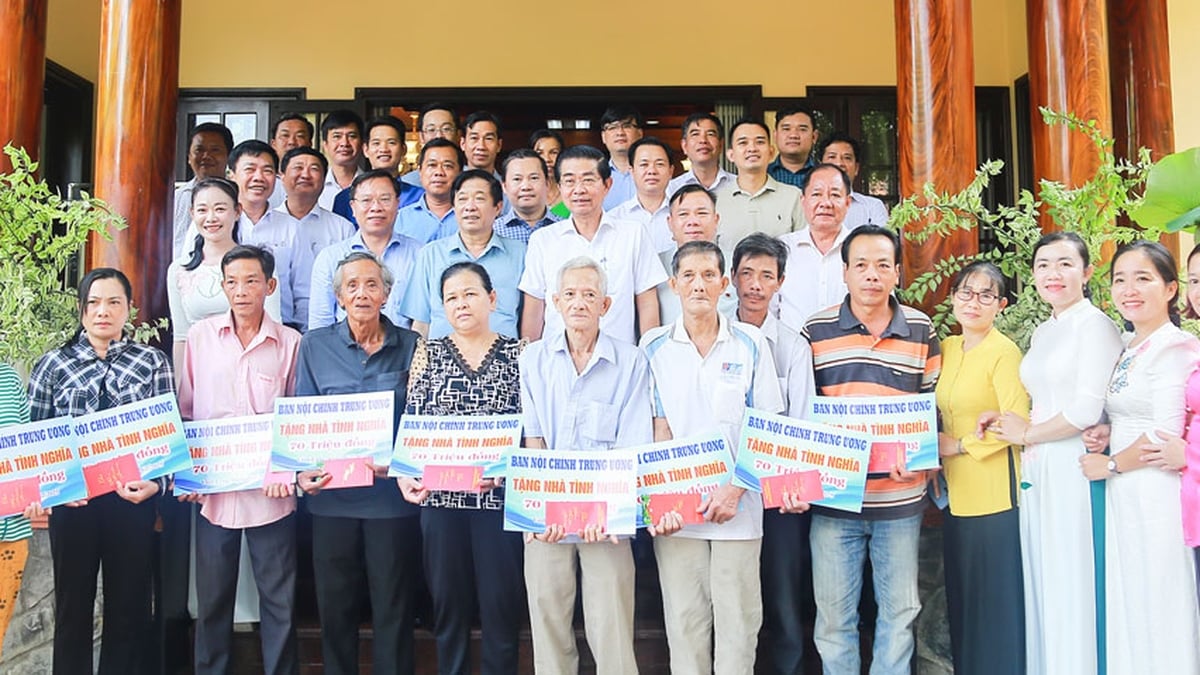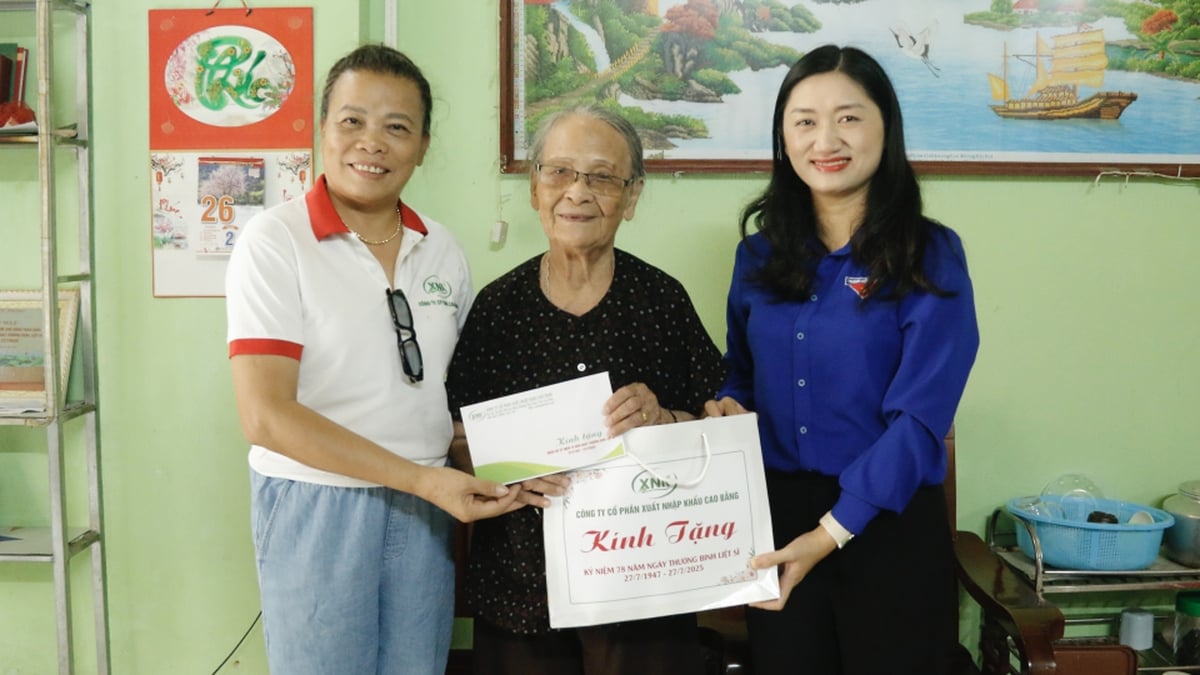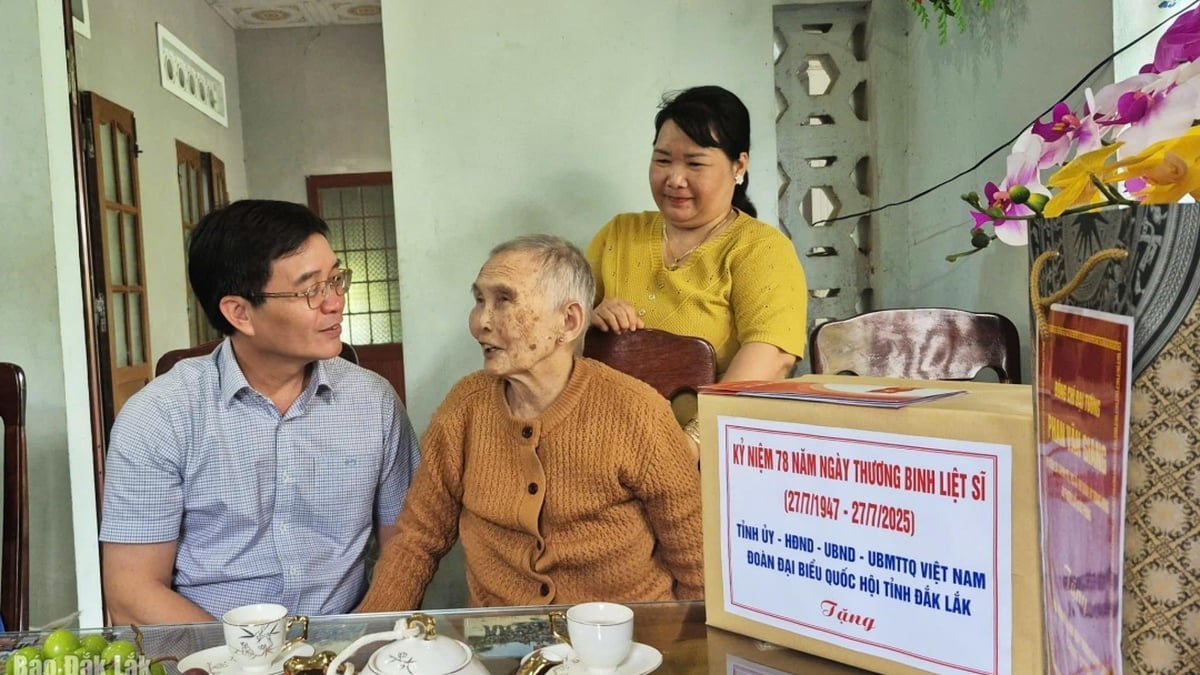Labor shortage but "disdain" the elderly
According to the General Statistics Office's forecast, by 2036, Vietnam will enter the aging population stage and "super-aging" by 2049. However, the current labor market still almost "disdains" the elderly and considers them as "having outlived their role".
Meanwhile, according to the report "Vietnam's Elderly: Analysis from the 2021 Population Change and Family Planning Survey" conducted by the United Nations Population Fund (UNFPA) and the General Statistics Office, about 38% of the elderly self-assessed their health as "good" or "very good", 46% rated it as "normal", and 16% rated it as "poor" or "very poor". This shows that a significant proportion of the elderly feel that they are healthy enough to participate in daily activities, including work. They themselves also want to work to contribute to society and bring income and a happy and healthy life for themselves. However, neither social perceptions nor current legal regulations encourage them to continue to participate in the labor market formally.
Specifically, according to current regulations, the elderly are male citizens aged 60 and over and female citizens aged 55 and over. In reality, at that age, many people still want to work, especially in rural areas and informal labor. These groups of workers often do jobs that do not require high physical strength but still bring stable income such as: repair, handicrafts, small businesses, family services or household-scale agricultural production.
However, many barriers still exist. Although the current Labor Code stipulates that older workers can continue to work if they have the need and are in good health. However, this provision only allows, without specific support mechanisms. Signing contracts, receiving insurance, participating in training, etc. all lack guidance and policies suitable for the characteristics of this age group. Therefore, the elderly are often excluded from vocational training programs because they are considered "no longer suitable for long-term investment". They also have difficulty accessing loans, especially from policy credit sources, due to conditions for securing assets or complicated documents. The lack of vocational skills certificates - although many people have solid skills - puts them at a disadvantage when changing careers or finding jobs in formal manufacturing sectors.
For their part, businesses are also hesitant to employ the elderly because of concerns about health risks and increased insurance costs. For example, if the elderly continue to work, they may encounter problems with social insurance and health insurance regulations, such as whether pensioners can sign official contracts or not; if a work accident occurs, how will the insurance regime handle it? Meanwhile, the State has not yet had any tax incentives or support mechanisms to encourage businesses to recruit this group of workers.
Amending the law to avoid wasting "silver human resources"
International experience shows that in Japan, the Government supports the establishment of employment centers for the elderly where they can do part-time jobs such as tour guides, gardening, teaching, etc. In Korea, the elderly are financially supported when working part-time, with the State paying a portion of their salary. The training system also opens skill classes for the elderly. The Singapore Government supports businesses in paying salaries and training the elderly, and has a clear preferential tax policy...
In Vietnam, there are also a few pilot models of vocational training and job connection for the elderly. This is a positive sign, but it is only the beginning because there are still many barriers from social concepts and gaps in current policies. In the face of this reality, there have been many proposals to build a suitable legal framework to use elderly resources, which could be a separate law or a separate chapter in the Labor Code revolving around issues such as: rights, obligations, regimes, and policies of elderly workers; specific contracts for the elderly; what conditions businesses need to meet when employing elderly workers... In addition, there are recommendations that the State needs to provide financial support and tax incentives for businesses if they employ more than 10% of their employees as elderly; support for occupational accident insurance costs, periodic health check-ups; design separate training programs on digital skills, small business skills, and social skills, organized by vocational schools in coordination with the Association of the Elderly; Synchronize social insurance, health insurance, and labor policies so that the elderly can work and be protected like other labor groups, but under appropriate regimes, they can receive pensions, sign seasonal contracts, and enjoy health insurance without conflicts of interest...
Currently, the draft revised Law on Employment for the first time outlines specific policies for elderly workers, in line with the context of rapid population aging in Vietnam. Specifically, according to Article 14 of the draft Law, elderly workers will be supported in three main directions. First, the elderly can access loans to create jobs, maintain or expand existing jobs from the source of loans for job creation. Second, the elderly can also receive training and development support to improve their vocational skills if they want to continue participating in the labor market. Third, the elderly are facilitated to participate in assessments and be granted national vocational skills certificates, to officially recognize their skills - a necessary factor in the process of applying for a job or changing careers. Notably, this law also provides a longer-term orientation when emphasizing that the State will have policies to support employment, retraining or career conversion for the elderly in the context of population aging, depending on socio -economic conditions and the ability to balance the budget... Compared to the current Law on Employment, this content is a clear step forward to help overcome difficulties when agencies, departments, branches and localities do not have a legal basis to design separate support programs for the elderly labor group.
It can be said that building a clear and synchronous policy system is a smart strategy in the context of increasingly obvious labor shortages and aging pressures. The draft revised Employment Law, if passed with the above-mentioned contents, could be an important first step in eliminating the long-standing notion of the elderly, giving them more tools to work, earn a living and live a useful life.
Speaking to the press, Prof. Dr. Giang Thanh Long, an expert on population aging and human resources, and a senior lecturer at the National Economics University, expressed his opinion: “If the Employment Law encourages the elderly to continue working after retirement age, then related laws, such as the Social Insurance Law, also need to be unified in terms of benefits… If the laws are not consistent with each other, implementation will be difficult. Therefore, I think the first thing to do is to review the entire legal system related to the elderly, to ensure consistency and feasibility.”
Source: https://baophapluat.vn/xay-dung-khung-phap-ly-de-khong-lang-phi-nguon-luc-nguoi-cao-tuoi-post549417.html








































































































Comment (0)